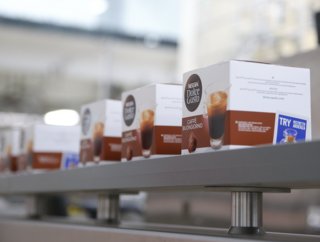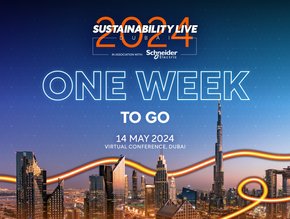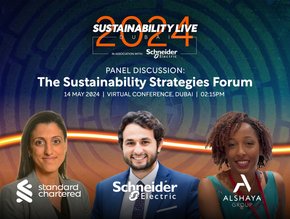Nestlé consumer goods packaging adheres to circular economy

Companies are jumping at the call to arms as they recognise the ongoing impacts of virgin plastics on the environment—likewise the extensive innovation required to eliminate them from supply chains.
Plastic holds many versatile properties that organisations have relied on for over a century, making it just as much of a transformation as that of internal combustion engine (ICE) cars to all-electric vehicles (EVs). However, companies are investing in the next generation of packaging. We’ve seen developments from Procter & Gamble (P&G), The Coca-Cola Company, Carlsberg, and other brands as they deliver new-material ways to store liquids.
Looking back on Nestlé five years ago, things looked a lot different. This was around the time that the company signed up to the Global Commitment on plastic waste and began researching new and inventive ways to deliver its food and beverage products to the end consumer.
"We are continually pursuing better packaging solutions where we can have a direct impact," said Antonia Wanner, Nestlé's Head of ESG Strategy and Deployment.
"With our in-house packaging experts and scientists, we are developing the next generation of packaging materials as well as redesigning packaging for the circular economy. In addition, we promote better infrastructure systems for waste management, advocate for harmonised regulation, and encourage behavioural change."
Nestlé’s circular packaging innovations
Virgin plastic was a key component of Nestlé’s packaging for decades, but the business set out to deliver circularity in its products range, resulting in a 10.5% reduction in virgin plastics since its assessment of its product impact in 2018.
By 2025, the company will reap further benefits of its innovation as it plans to reduce its plastics to a third of its 2018 amount. An exemplary production is its Dolce Gusto capsules in the Nescafé coffee brand, which is on its way to saving 2,500 tonnes of polypropylene.
In 2022, the company saw a major achievement: reducing its total product packaging weight by 200,000 tonnes—eliminating 280,000 tonnes of greenhouse gas (GHG) emissions in the process.
Much of this results from the changes it has made to the composition of its packaging. If plastic is to be used, it comes from recycled feedstock, and all other materials are non-plastic, recyclable materials developed to have similar characteristics to the plastics that have served the company for decades.
In the Buxton Natural Mineral Water range, Nestlé shifted its bottles to 100% recycled PET, which is perhaps one of the simpler shifts. Many other products require further research to uncover more sustainable methods of packaging.
Better relationships breed sustainable packaging innovation
Partnership is a key part of Nestlé’s development approach. The company now collaborates with 220 initiatives to develop packaging collection, sorting and recycling efforts across countries like Europe, Africa, Asia, and Latin America. Such research will determine what solutions are feasible. An example initiative is the door-to-door collection programme in Malaysia; collecting packaging in this way almost diverted waste transpired to landfill, having collected 6,000 tonnes of consumer waste.
*************************************************
For more insights into Sustainability - check out the latest edition of Sustainability Magazine and be sure to follow us on LinkedIn & Twitter
Other magazines that may be of interest - EV Magazine | Energy Digital
*********************************************
Net Zero LIVE will be hosted live from the QEII Centre, London on the 6th and 7th of March, and streamed globally via our virtual event platform Brella. Net Zero LIVE London will feature four LIVE themes, incorporating Sustainability LIVE, EV LIVE, Scope 3 LIVE, and Energy LIVE to deliver a holistic conference and exhibition experience with opportunities to connect with like-minded peers and actively contribute to crafting a sustainable future. Following Net Zero LIVE, viewers can also sign up for Sustainability LIVE Dubai and Singapore.
Sign up to the The Global Sustainability & ESG Awards 2024, coming to London on the 11th September 2024.
*********************************************
BizClik is a global provider of B2B digital media platforms that cover 'Executive Communities' for CEO's, CFO's, CMO's, Sustainability Leaders, Procurement & Supply Chain Leaders, Technology & AI Leaders, Cyber Leaders, FinTech & InsurTech Leaders as well as covering industries such as Manufacturing, Mining, Energy, EV, Construction, Healthcare + Food & Drink.
BizClik, based in London, Dubai & New York offers services such as Content Creation, Advertising & Sponsorship Solutions, Webinars & Events.






